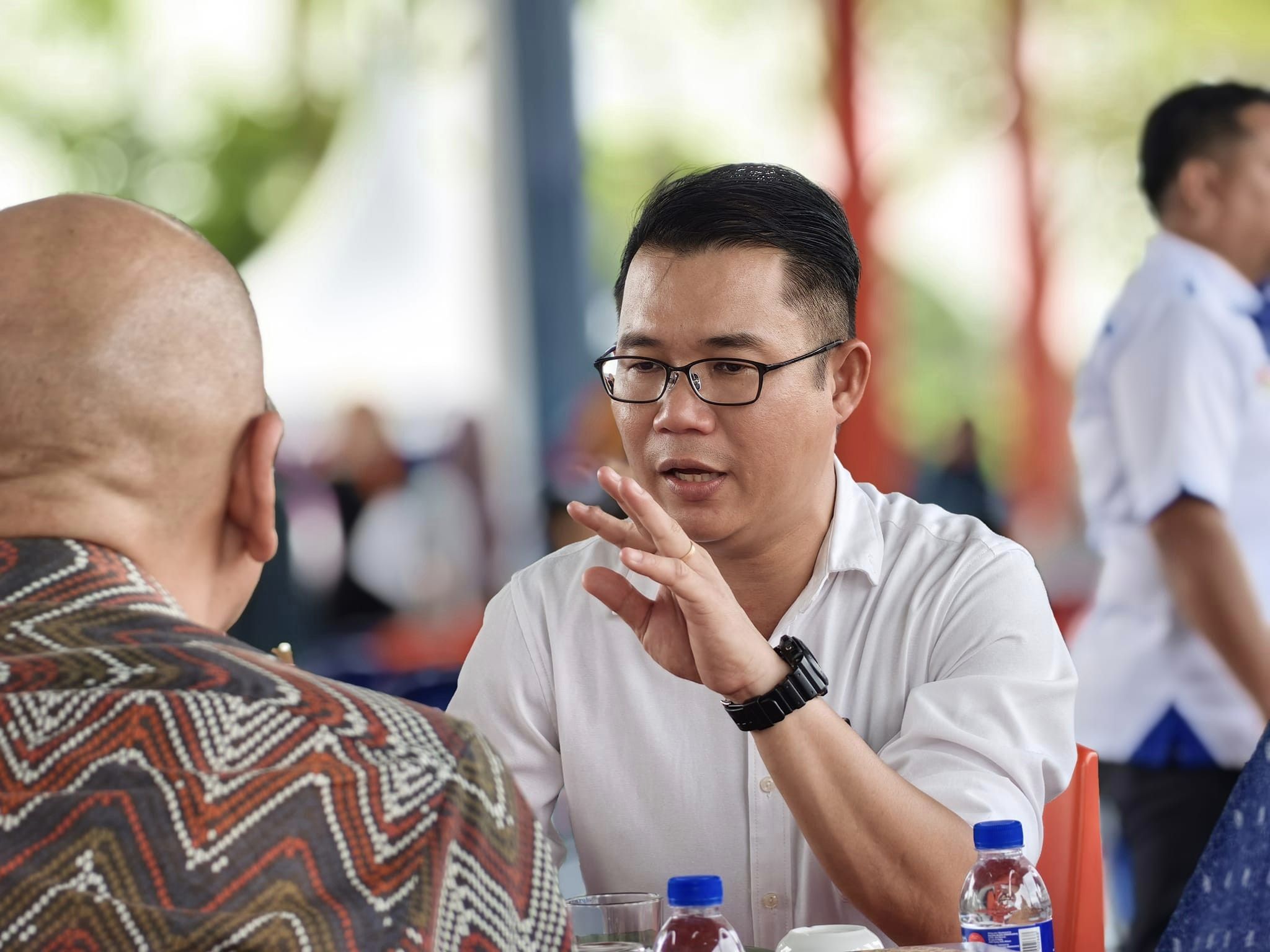KUALA LUMPUR, Oct 20 – Bakri MP Tan Hong Pin has demanded answers about plans to build the long-awaited specialist wing at Muar Hospital that was promised by former Health Minister Chua Jui Meng two decades ago.
In a pointed query, the DAP lawmaker questioned whether development planning hinges on necessity or whether it is influenced by whoever holds the health Cabinet portfolio.
“I want to ask this august House, do we plan based on needs or on who the minister is?
“Twenty years ago, this was planned, and I was informed that the blueprints for a specialist building at Muar Hospital had even been prepared as part of the upgrade of Muar Hospital to a specialist hospital. Hence, the name Sultanah Fatimah Specialist Hospital (as Muar Hospital is known today).
“However, nearly 20 years have passed, and we still haven’t seen any sign of that specialist building,” Tan said in his debate on the 2024 Budget in the Dewan Rakyat yesterday.
“There are rumours that this might be due to the change in health ministers, from Chua Jui Meng, who was Bakri MP, to Chua Soi Lek, whose constituency is in Batu Pahat. It is said that the allocation for the specialist building was redirected from Muar or Bakri to Batu Pahat.
“I have no issue if there is a genuine need in Batu Pahat, but the original plan for a specialist building in Muar should also be continued,” said the government backbencher from Pakatan Harapan (PH).
Jui Meng was health minister from 1995 to 2004, succeeded by Soi Lek from 2004 to 2007. Incidentally, like Jui Meng and Soi Lek, current Health Minister Dr Zaliha Mustafa’s constituency is also in Johor, as Sekijang MP.
Tan said that if such speculations hold any truth, it would point to a concerning trend where the nation’s development planning is excessively influenced by the minister’s constituency as a Member of Parliament.
“This is a loss. Places with genuine needs should take precedence. Plans (for a specialist building in Muar Hospital) should be executed.
“There are shortcomings that need to be rectified by the current administration because we now have a new government. Under Tambun’s (Prime Minister Anwar Ibrahim) leadership, I hope there will be reforms so that not only the administration runs smoother, but our planning is for the long term, not just based on the minister’s whims,” Tan said.
“I hope these matters are given attention, not just by the Ministry of Health (MOH), but also by the prime minister so that these weaknesses can be addressed.”
Only Three Working Ambulances At Muar Hospital
Apart from the construction of the specialist building, Tan also raised concerns about the lack of available ambulances and parking spots at Muar Hospital.
Tan said the specialist hospital in Muar is currently operating at just 30 per cent of its ambulance service capacity.
He revealed that Muar Hospital has only had five ambulances “for the longest time”, but out of the five, only three are operational because the remaining are “constantly being sent to the workshop”.
“I was informed by the hospital that the issue has been reported to the MOH. So, what steps have been taken to address this issue that has persisted for so long without resolution?
“What is the problem with our delivery system? It has to be made clear that Muar Hospital not only caters to the needs of the Muar area, but is also a part of a cluster of hospitals that covers and treats patients from other districts in Northern Johor.
“Therefore, the demand for ambulance services is very high. That is why we need at least 10 ambulance units, but currently, only three units are operational, which translates into a 70 per cent reduction in its capacity. What efforts has the MOH made to address the shortage of ambulances at Muar Hospital?” Tan said.
According to the Auditor-General’s 2021 report (Series 2) tabled in Parliament last February, only 31 per cent to 42 per cent of the MOH’s ambulance arrivals from 2017 to 2021 met the target of 15 minutes or under for critical emergency cases.
This fell short of the ministry’s 50 per cent target for responding to Priority 1 cases or emergency medical situations that are considered to be life-threatening and require immediate attention from medical professionals. Examples of Priority 1 cases included in the report were stroke, breathing difficulties, and accidents.
These cases are given the highest priority by emergency medical services and are typically responded to with the fastest possible ambulance dispatch time.
The same audit also found that an ambulance procured for Tawau Hospital in Sabah arrived 10 months after the expected date of arrival despite Covid emergency provision. The AG’s report revealed that the shortage of ambulances at Tawau Hospital resulted in 17 emergency calls going unanswered.
Going In Circles 90 Minutes For A Parking Spot
The Bakri MP also raised concerns about parking limitations at Muar Hospital. Drawing from his own experience of seeking medical care at the hospital, Tan explained that it took him more than an hour and a half to secure a single parking spot.
“This is a complete waste of time and this issue has been repeatedly brought up. Although I’ve been an MP for less than a year, this issue remains unresolved, with no positive response from the MOH,” Tan said.
“I’ve had multiple meetings with the minister and have discussed this matter. I’ve proposed freeing up parking spaces for hospital staff, who could park at alternative areas and have shuttle services.
“This is because staff tend to occupy parking spaces for extended periods and this is a waste. Instead, these spaces could be used by the general public who would likely use it for a maximum of two hours. This means that one spot could serve up to four different vehicles. It could be a short-term solution to alleviate traffic congestion,” Tan added.
Tan is hopeful that with the MOH’s 13.5 per cent increase to RM41.2 billion in Budget 2024, there will be funding earmarked to tackle the challenges at Muar Hospital.
“Next year, in 2024, there is an increase of approximately RM5 billion to RM41 billion – the largest increase compared to other ministries. So I hope that from this increase, there will be allocations to address the issues I mentioned in my debate and other issues I have raised previously.”








